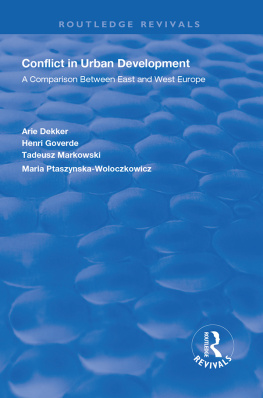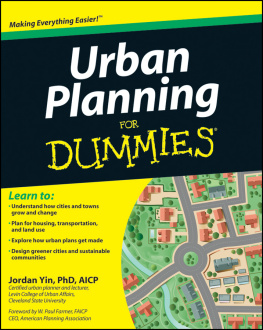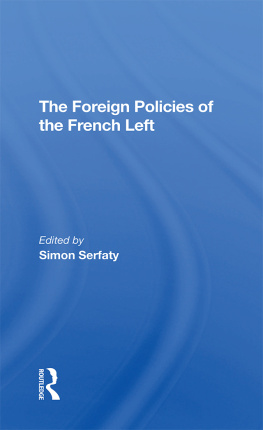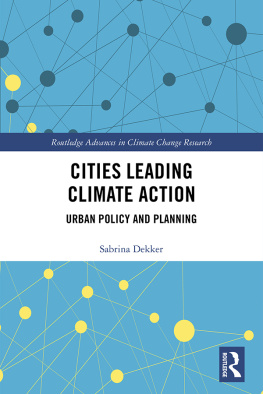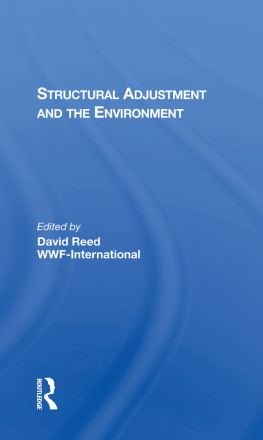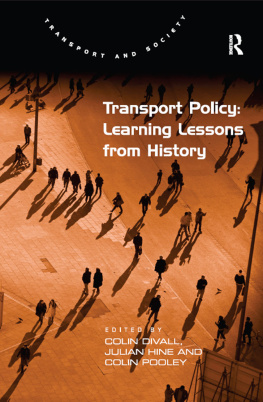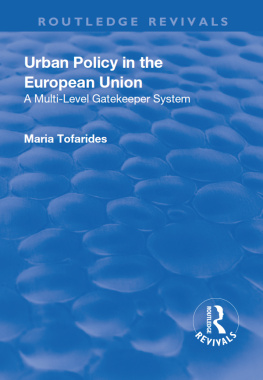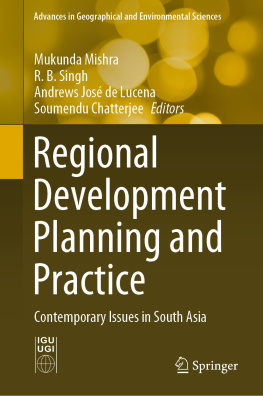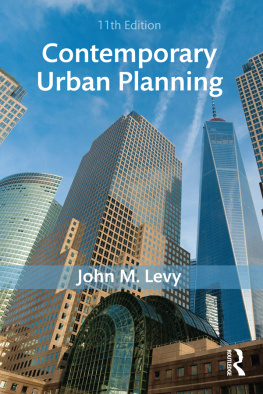CONFLICT IN URBAN DEVELOPMENT
First published 1992 by Ashgate Publishing
Reissued 2018 by Routledge
2 Park Square, Milton Park, Abingdon, Oxon, OX14 4RN
711 Third Avenue, New York, NY 10017, USA
Routledge is an imprint of the Taylor & Francis Group, an informa business
Copyright A. Dekker, H. Goverde, T. Markowski, M. Ptaszynska-Woloczkowicz 1992
All rights reserved. No part of this book may be reprinted or reproduced or utilised in any form or by any electronic, mechanical, or other means, now known or hereafter invented, including photocopying and recording, or in any information storage or retrieval system, without permission in writing from the publishers.
Notice:
Product or corporate names may be trademarks or registered trademarks, and are used only for identification and explanation without intent to infringe.
Publishers Note
The publisher has gone to great lengths to ensure the quality of this reprint but points out that some imperfections in the original copies may be apparent.
Disclaimer
The publisher has made every effort to trace copyright holders and welcomes correspondence from those they have been unable to contact.
A Library of Congress record exists under LC control number: 92006673
ISBN 13: 978-1-138-61638-7 (hbk)
ISBN 13: 978-0-429-46213-9 (ebk)
How does physical planning function in practice when reconciling clashes of interest and in solving conflicts? And how does physical planning function under divergent political systems?
These intriguing questions have been considered by academics from the University of Lodz and the Polish Academy of Science (Warsaw) and the Catholic University of Nijmegen. In a co-operative project under the title PONECOS (Poland-Netherlands Comparative Study) they carried out a study into the conflict solving capacity of the administrative systems in both countries.
In three pairs of case-studies with comparable problems in each of the two countries, the conflict solving process was examined. As part of that, the formal and informal means that the parties used in the course of the conflict were studied. The cases deal with the location of a large waste disposal site, urban development in the environmental shadow of an industrial plant, and urban expansion in a metropolitan region.
The cases have been set in the context of the policy systems of both countries. It is for that reason, that the study also includes comparative descriptions of the policy systems with regard to spatial and urban questions at the time the case studies were examined, which was over the period 19701989.
The studies are preceded by a methodological chapter and a chapter concerning policy networks as a theoretical framework. A comparative analysis of the cases ends with conclusions regarding the theory and the management of conflicts.
This book therefore offers an important insight into how conflicts originate and develop and how to deal with conflicts with a complex character.
We warmly welcome the publication of this study and would like to stress the extra significance of this book in view of the dramatic changes that took place in Poland in 1989. The lesson that can be learned from a comparison of two regimes which, until recently, were so different, have now acquired even more relevance.
The Ministry of Housing, Physical Planning and Environment of the Netherlands is glad to have supported this study, which fits in with the Declaration on Co-operation in the field of physical planning signed between the two countries.
J.G.M. Alders,
The Minister of Housing, Physical Planning and Environment of the Netherlands
A. Kowalewski
The Deputy Minister for Spatial Economy and Architecture of Poland
July 1991
The idea of the research project reported in this book arose in 1987. Two networks of contacts brought together academics and people from practice in Poland and the Netherlands. People from the Department of Urban Economics of the University of Lodz, the Department of Regional Economics of the Polish Academy of Science in Warsaw, the Department of Urban and Regional Planning and the Department of Administrative and Policy Sciences of the Catholic University of Nijmegen, the National Physical Planning Agency (the Hague) and the Provincial Physical Planning Agency of Gelderland (Arnhem) started their co-operation in the end of 1987 and from the beginning contributed to the project. Two seminars and two editorial meetings were held. People invited from outside took part in the seminars, so as to broaden the discussion and to bring the researchers in contact with people actually involved in the policy-making processes which were being investigated.
In both networks Professor Dr. Jerzy Regulski was the central person and this particular comparative research project was one of the series which he has stimulated. His interest in local democracy was a driving force to promote international contacts, which could produce possibly useful knowledge and capabilities from the other countries.
When the project was halfway, Professor Regulski had to terminate his contribution to it, so as to enter the Polish political scene in the period of the dramatic shift.
We are grateful to him for his part in the initial stage of the project and believe that, as it developed, it reflects his ideas about international cooperation.
Numerous persons and bodies have helped us during the research project. We would like to thank all of them and to mention some of them especially.
The voivodship of Lodz, the provinces of Limburg and Gelderland, the municipalities of Duiven, Geleen and Westervoort, the Department of Safety and Environment of DSM, and the Agency of the Environment of the Ministry of Housing, Physical Planning and Environment, contributed in various ways. We are grateful to have received their co-operation and hospitality.
The National Physical Planning Agency supported the project financially. Drs. Rob Kragt was responsible for the fruitful relation with the Agency and took part actively in various activities during the project. The Department of Urban and Regional Planning of the Catholic University of Nijmegen and the Foundation for Research and Consultancy concerning Administrative and Policy Affairs (BOA) supported a seminar in the Netherlands financially. The University of Lodz and the Academy of Science in Warsaw financed a seminar in Sulejow and an editorial meeting in Warsaw and Lodz respectively.
On the Polish side, researchers were involved who do not appear as authors of this book. We thank Dr. Piotr Bury, Dr. Iwo Byczewski, Stanislaw Furman Msc, and Dr. Janusz Kot for their contribution. Mrs. Maria Horbaczewska provided organisatorial assistance for the seminar in Poland.
On the Dutch side two students took as their graduation thesis the cases of Duiven-Westervoort and DSM-Geleen respectively: Roel Winkelhuyzen and Cecile Gribling. The latter helped us to organize the seminar in the Netherlands.
Mrs. Angela Needham-Houghton corrected the use of English in the text. Mrs. Annie van Bergen-Hendriks and Mrs. Willy Verheijen-Verkroost of the Secretariat of the Faculty of Policy Sciences of the Catholic University of Nijmegen word-processed the text of the book and accomplished a complicated job. Mr. Paul Wissink of the Section Cartography of the A-Faculties of the same university drew the maps and diagrams skilfully.
Henri Goverde
This study is an attempt to improve our understanding of public policymaking in Poland and the Netherlands concerning the management of conflicts in urban development at the local level. Although this is a topical subject for many countries, it is of special interest to those countries in Eastern and Central Europe which have embarked on the tremendous task of reforming their political systems at the local level.

